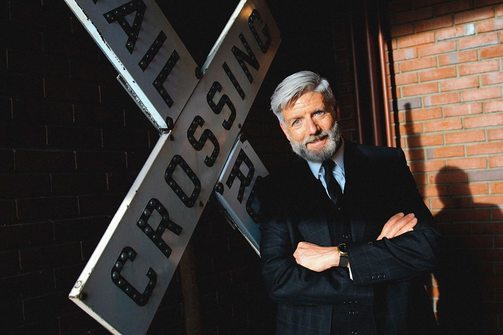 Interview w/ story teller & entrepreneur Rick Dancer Interview w/ story teller & entrepreneur Rick Dancer Curiosity is not always a death sentence for the cat, sometimes curiosity can lead to very fun and unexpected positive life event. In my social media and local personalities peripheral vision I had been noticing for a while this guy named Rick Dancer who was utilizing aspects of social media that no one else was daring to dabble in. Even now that there are some experimenting with tools such as Facebook Live, few of them approach it with the personal touch and the collaborative spirit that Mr. Dancer does. Curiosity drove me to I reach out to Rick and he graciously agreed to meet up with me for coffee one fateful day at the Washburne Cafe in Springfield, Oregon, sparking a friendship. Anyone who has seen him in action with Live with Rick Dancer knows he is a rather transparent person, I was glad that he was willing to go even deeper for this interview. Jon Isaacson / IZ Vents: Your past life was as a successful local journalist, when you look back on that leg of your journey, what are the key lessons you learned? Rick Dancer: Television News taught me how to think on my feet. I naturally react quickly but you make a few errors publicly and you quickly learn how to avoid pitfalls and holes. I also learned to take my love of storytelling and put it to work for me. For a few years I tried to mimic news people and write textbook type stories. However, what really changed my style was covering stories of great pain and humanity. Soon, I chucked the journalistic style for my style which was telling a story from the heart perspective. A significant portion of your story includes some road bumps which include phasing out of journalism not completely of your own accord, an “unsuccessful” run into politics and beating cancer, how has what many may look at as failure brought you to where/who you are now? Failure is my greatest teacher but many discount the value of failure or the pain one must go through in order to discover their true story, their true self. In news I won a lot. I got awards, had honors and lots of attention from the public. Running for public office humbled and tried to destroy me. It took every ugly thing in my life and put it right in front of me. Ego lost much of its power over me. I no longer care as much what people think of me. Losing has given me freedom and I don't think you can be truly free without loss. How is it that a nearly 60 year old man 1) looks so handsome and 2) is leading the charge in the state of Oregon to optimize the new media? How did you get into Facebook live and launch that into a growing local business? At 58 years old my thought is we must redefine what it means to age. I surround myself with younger people, not on purpose, but because they are the ones who are the most help to me. When I ran for office my young staff had me on Facebook the day after it started. Social media is a natural for me and I use it well. Young folks kept me ahead of the curve. We are using Facebook in a way many can't, won't or fear. Live has always been my weakness....I mean I thrive on it. A day after the live feature came out I was on there doing video's, figuring out how it worked and looking for ways to make money off it. Part of that desire is born out of desperation. Video production is easier and many don't need people like me to produce a video for them so I needed something to bring in the money. I found people who trusted me and launched "Get Real with Rick Dancer." Now we have "Live with Rick Dancer" and in November will begin "At The Car Wash, Live with Rick Dancer." You must never get stale and that means being willing to jump on the next thing before others do. You have a unique talent for drawing out stories, what is it about stories that are so compelling and how have you learned to bring those out of people? I have always been a storyteller but the gift began as a listener. I was the kid who sat with the old folks at family gatherings and listened to the stories. Growing up I now believe I had some learning issues. Spelling was and still is very tough for me. Proper sentence structure and understanding the ins and outs of grammar have never been natural. For years that kept me from using my gift. I would not write because I didn't want people making fun of my technique. In the news business I discovered my heart and use of real language, real words, pauses, points and percussion in a sentence was much more important than punctuation, spelling and sounding acceptable to the masses. This is what set me apart from others. Journalists used to poke fun at my techniques but none of them could match my ability to grab, squeeze and rip at the heart of a viewer. Learning to ignore them and winning numerous awards for writing, didn't silence the critics, but it made it so I didn't care, I understood what worked and used it. 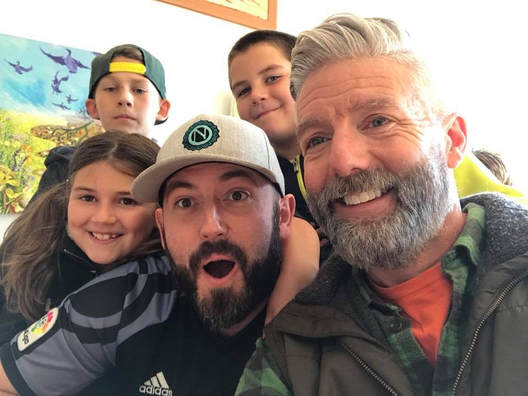 Rick Dancer w/ Jon Isaacson & 3/4 of the IZ squad Rick Dancer w/ Jon Isaacson & 3/4 of the IZ squad For those who are looking to market their services and products, what are some key principles they need to understand about interacting with the current economy? People today aren't just buying a product they are purchasing something from a person. They can buy a video from anyone but what makes my video better. It's not the equipment we use but the heart we bring to the story. People want to buy from people and yet many in marketing still look to the sell, sell, sell, in order to sell. What people want is you. They want to have a relationship with the person they are buying from. Purchasers are buying your brand. If a video producer wants to be the "Big Equipment Dude On The Block" that's their brand. Pretty pictures are nice but a story that helps you understand why the person serving you is serving you is far better than another drone video of your business. People don't care what you sell or what you do they want to know why you do it. But to understand the customers why you have to first understand yours. Storytellers are curious people who are not looking for happy endings or even an ending but instead the passion of a life. What projects are you working on lately that get you excited to continue with what you are doing? My dream is to travel the country, the world and video the stories of everyday people. I want to visit the small towns, the nowhere towns, the overlooked "spots on a map" and unveil that place for the rest of us. I believe we are tried of the fast-paced get it done life. There is something soothing, sobering and peaceful about simplicity. But the problem is we are complex or at least we've create a complex way of life. In order to reveal simplicity in each of us, there is a process that only great storytelling can release. No one wants to be told how to live, but show me, show me how to do it through the words and actions of another person, and I may actually see it. So, while I love what I am doing I hope it blossoms into the next thing. I hope my world takes me on the road to the places less traveled. And of course, the trip won't be any fun without people like you to follow me. As you look back on your life and the new chapters you are carving out what are some key things you believe are important for entrepreneurs? Life is not about being comfortable. No, it's about learning to be comfortable with discomfort. Life is not about you. Yes, you have value and purpose but those around must always be treated better. What you do doesn't matter at all. Why you do it is all that counts. Most people will never get to the why. Oh, they say to help people but the real story is deeper and too many of us stop just outside the door of discovery. Challenging our perceptions and our lives is like walking on a sore foot that is tormented with a sliver. Instead of stopping to dig at it, cause it to bleed, drain the infection and pull the sliver out, we continue to walk on it until we get used to the pain. After a while we don't even feel the sliver but it's still there. I am not the best father, husband nor am I the best businessman in the world but that's not my goal. I longed for freedom and now I have it. I longed to do what came natural to me and by learning to do things that are un-natural (vulnerability) I have found me. Cancer, losing, failing and struggling are my best teachers. While I would never purposely sign up for their classes, these educators continue to serve me well. Instead of trying to chase difficulty out of our lives what would happen if we look for it? One parting comment: I learned during my political run for office that I can't please everyone, not even myself. But I can please God so now I live for an audience of one....or should I say, "The One." Thanks for listening. You can find out more about Rick Dancer through his website, see him in action via Live with Rick Dancer on Facebook, as well as LinkedIn, Instagram and Twitter (@RickDancer).
0 Comments
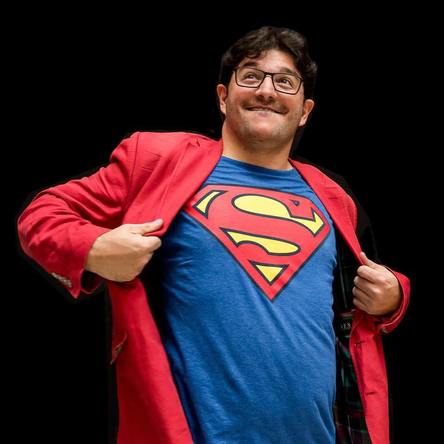 Interview with Tony Canas, co-author of Insuring Tomorrow Interview with Tony Canas, co-author of Insuring Tomorrow We love reading the stories of the successful once their journey has reached a point that they can drop bombs of wisdom on us about how they reached a level that we can admire. But what does innovation look like at the ground level, while it is still happening? What does it look like when you have an idea, you connect with a few people who get it, you begin to collaborate and build towards conquering your dreams? Tony Canas and co-author Carly Burnham (read our interview with Carly HERE) have found a piece of the puzzle that they are skilled and passionate about, they have collaborated to create InsNerds and co-authored a book, Insuring Tommorrow, to share their insights and story. To interact with Tony is to engage with an aspect of innovation that is gaining momentum through hard work, creativity and collaboration within an industry (like all industries) that is in need of innovation. Tony is digging into a subject that many are reticent to touch, the recruitment, development and retention of Millennials. In doing so, Mr. Canas has become a known blogger, author and speaker on the topic with his session "Recruiting and Retaining Millennials" being delivered at the CPCU Society Leadership Conference and Annual Meetings for 2014. Our thanks to Tony Canas for taking the time to share with us. (Jon Isaacson / IZ Ventures): When kids are asked in high school what they dream of becoming, the insurance industry is not one of those top 10 career choices, what brought you into this field? Tony Canas: Like almost everybody else I fell into insurance by accident. It was 2009 and I was living in Des Moines, Iowa, one of the top insurance cities in the US, and got downsized from my job as a fleet manager with a transportation company when the economy crashed. I started applying to a bunch of jobs and it just so happened I landed at the Farm Bureau Claims Call Center and immediately fell in love with the industry. What aspects of insurance are you currently engaged in, what does your day-to-day look like? In my day job I’m a middle market underwriter for a major national carrier and I manage the state of Mississippi. We have a lot of verticals (energy, public entity, construction, healthcare, etc) so I end up underwriting a lot of manufacturing, retail chains, wholesales, restaurant chains and hotel chains. You are building quite a presence through blogging at InsNerds.com, having written Insuring Tomorrow and with your speaking engagements, what are your goals with these entrepreneurial endeavors? I spend a lot of my free time growing and promoting InsNerds, our two podcasts and marketing our book Insuring Tomorrow. I also have keep evenings a week devoted to “micro-mentoring” other insurance professionals. I help them figure out where they want to go and how to get there and see if I can open some doors out of my 10,000+ LinkedIn connections. I’ve been doing it for a few months and some of my mentees have already scored better jobs which is incredibly rewarding! Anyone can grab some time on my calendar at ChatWithTony.com, although at times the wait can be a couple of weeks. On the writing side I work on bringing in new authors to InsNerds and writing some of my own articles (mostly about career growth) and we’d like to write a second book. On the speaking side I speak at insurance conferences about Engaging Millennials in Insurance as often as I can. The speaking invites have really picked up since the book came out and I love it! I've talked to several people that have ideas or some level of desire to write a book, for you what was the catalyst that brought you to writing Insuring Tomorrow? I waited five years for somebody to dedicate a book to the important topic of how to engage Millennials in our industry, and nobody did. Finally one day my girlfriend came home and told me “It’s time to write the book”. I called Carly (my co-author) and said “it’s time to write the book”. Then we just did it. I’m not saying it was easy, but after years of being passionate about the topic and collecting reference material actually getting it done wasn’t too bad. We wrote it in about 90 days and sales have been better than expected and the reviews very positive. In that process of formulating your thoughts into a book what was easier than you expected and what was harder than you expected in that process? It was both… What I mean is that while it was hard to sit down and write a table of contents to plan the different chapters, once that was done it was easy to write the draft for most chapters. The tough part was having to cut some of the chapters we originally planned for because we couldn’t find enough data and outside resources to really back them up. We wanted the book to leave the reader with a pretty airtight case, not just our opinion, but rather ideas backed by tons of outside research. Overall it took a LOT of time, and we stayed up late very often during the process, but it was mostly enjoyable and incredibly worth it. What have been some of the positive responses to your book? The topic of Millennials is rather charged, has there been much opposition to your publication? While there is absolutely a lot of “millennial fatigue”, the response has been almost completely positive. I think most people in the industry recognize that while we have talked a lot about the topic, we really haven’t solved it and we MUST solve it. Some of my favorite reviews said, “It is truly outstanding.” “Every insurance CEO should read this.” and “Essential reading for insurance executives.” One early reviewer called it, “The best book on understanding culture since Malcolm Gladwell’s Outliers.” The book is available at InsuringTomorrowBook.com The subject matter that you are speaking to centers around the topic of Millennials in the workforce, as such what is one key piece of advice that first you would give to leaders working with millennials and then to millennials who are either entering the workforce or seeking to better themselves? It’s hard to digest five years of research into a 250 page book, let alone a one hour talk and even harder into a couple of sentences, but I’d say the best way to understand Millennials is think of them as a different culture. Not better or worse, just different. And try to understand them in that context. Also, look at the numbers and realize that this will be a MASSIVE change for our industry. The business world in general has been dominated by Baby Boomers for decades, there were 25% fewer Gen Xers so they will always remain a minority, as the Boomers retire business will have to reinvent itself to survive in an era where Millennials will be the bulk of the workforce for at least a couple of decades. What is next for Tony? Now that’s a hard question! My plans have changed a lot over the last few years and I’m sure they will continue changing. I do know that I’m staying in the insurance industry for the rest of my career and will continue running InsNerds. Chances are many other projects that I haven’t even imagined yet will emerge from the InsNerds umbrella. I will continue being a positive voice of change for our industry and will continue my efforts to help us recruit and retain a new workforce. Tony Canas regularly writes for InsNerds.com, he is on LinkedIn and tweets as @TonyCanas4. Insuring Tomorrow has many applications outside of the insurance industry and is available for $20, you can find our review of the publication HERE. 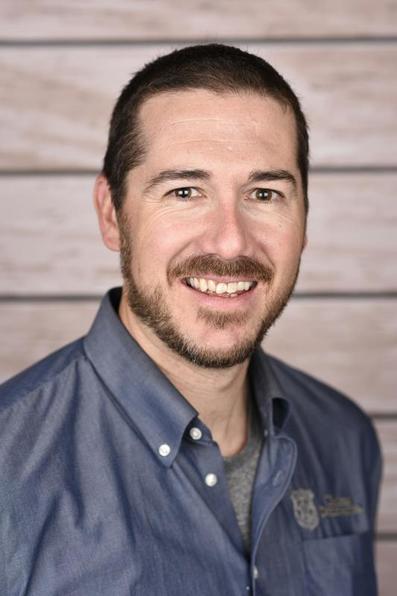 Interview with Andrew McCabe of Claims Delegates Interview with Andrew McCabe of Claims Delegates How many people do you know who have a college degree and are working directly in the field that they studied for? Over the years of working with and interviewing professionals, there is a much more common thread of hard working people who put their careers in motion, met adversity and found a way to keep themselves moving forward. Thankfully we are a resilient species, we can find means of inspiration in our journey and if we are fortunate, we find people who will help expedite our progress. Andrew McCabe is an entrepreneur who has found ways to improve himself, is building a brand and has joined forces with like minded professionals who are seeking to innovate in their sector of the service industry. Our thanks to Andy for taking to the time to share a bit of his story and some of the snippets of success that have helped bring him to where he is as an independent adjuster, author and founder of a restoration conference. You don't meet many people that set out to get into the insurance industry, how did you find yourself involved with this profession? I took a job as a marketing manager for a restoration contractor straight out of college. I have a marketing degree, so I thought it would be a good start. I soon learned that I knew very little about "real" B2B marketing. Colleges don't teach networking or relationship building. I was quickly moved into Project Management with WRT and ASD classes. The rest is history. Currently you are engaged in several entrepreneurial ventures so let's break down a few of those components. Do I understand correctly that your main gig is as an independent adjuster? Currently I write estimates for contractors across the country as my main gig. I only recently started working as an independent adjuster out of necessity because we had a CAT [Catastrophic Loss Event] hit Bend, Oregon and it was all hands on deck. What was the catalyst for launching out on your own? The catalyst for starting out of my own was out of necessity, I had been fired three years in a row from three different jobs. I decided in late 2012 that I would never be fired again so I decided to work for myself, go figure. So, I started writing Xactimate estimates for whoever would hire me and most folks thought I was crazy and that the idea would never take off. But now we're here we are almost 5 years later there are several companies across country that do exactly what I do; write Xactimate estimates for other people I feel like the market is changing and the restoration industry which has been historically 15 years behind the time is going to be swept up in these changes. Writing estimates independently is only the beginning of what I see as a automation of the entire industry. You have written a book and developed a program around that publication titled The 24 Hour Tech, what is the story behind developing this program and what is the elevator pitch for how it benefits the water damage service providers in our industry? The 24 hour tech is another example of desperation and necessity being the mother of invention. I was working with a ServiceMaster franchise in Scottsdale, Arizona as the sole estimator, project manager and general manager. I was stuck with whomever the owner decided to hire in the given moment and I found myself training and retraining employees two and three times a month. I also found it difficult to find time to get to every single project that I had to estimate in any given day. The TPA [Third Party Administrator] framework made it almost impossible for me to do all the jobs that I needed to do. I needed to find a way to have the water damage technicians do my job for me in that I could sit back at the office and do estimates while they gathered the data and took the pictures for me. I developed The 24-hour Tech System to accomplish both things. I was able to train new water damage technicians quickly and I was able to get the information that I needed as an estimator back at the office without having to visit every single job myself. The crazy thing in my mind is that the franchise did not provide a system of training or documentation that accomplished what the 24 hour tech accomplishes so elegantly and simply. One of our taglines is "connect, collaborate and conquer", you have brought together a group of industry professionals and are putting together a conference that will meet this year, Restoration 2.0 Summit. How long has this idea been in the works and what was the catalyst for making it happen? I had/have been receiving email after phone call from folks who all have the same problems, frustrations and desires. There are so many of "US" out there, that someone had to give it a name and a place. That is the Restoration Alliance. The Rebels are the forward face and voice. But the Alliance is deeper and wider than even I could have imagined. We decided to hold this event in December/January this year. It just felt like the right thing to do. For those who haven't heard or may be on the fence, what is the primary benefit of attending R2.0? The primary benefit of the Restoration 2.0 Summit is connection and inspiration. We are all in this together, even those who chose to go it alone. We've covered three areas of your efforts, what would you say is a key piece advice either collectively or individually for restoration professionals as a collective body? I've been writing this email for the past several days, and I could go on for pages if I had the time. For brevity's sake I will say this: we need to look for and recognize the humanity in the things we do and folks we see every day. Yes, the "system" is flawed and downright frustrating. If we pause to see the PERSON sitting across from us, and next to us, we can start to find the wins without giving up our souls. You can find more about Andrew McCabe and his work through claimsdelegates.com, he is on LinkedIn and tweets as @claimsdelegates. The Restoration 2.0 Summit will be hosted in Bend, Oregon on September 29, 2017. ᐧ 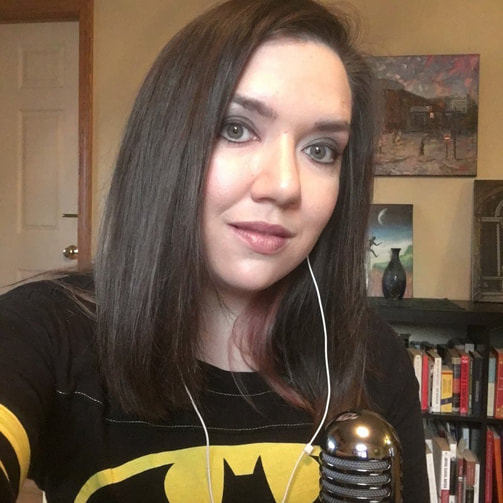 Interview with Carly Burnham co-author of Insuring Tomorrow Interview with Carly Burnham co-author of Insuring Tomorrow We recently read and composed a review of the book Insuring Tomorrow: Engaging Millennials in the Insurance Industry, written by Carly Burnham and Tony Canas. Carly and Tony are leading by example in their industry by investing in their personal development as well as collaborating to assist others to grow in the industry that they are engaged in. The two founded the resourceful website InsNerds.com which seeks to be, "The go-to source for transformational talent development and career management serving the global insurance ecosystem." We reached out to the accomplished Carly, who holds her MBA in business administration and the insurance industry CPCU, was very gracious in sharing some of her story in reaching her current position as well as the efforts that went into co-authoring a respected industry publication. Jon Isaacson (IZ Ventures): I've been in the industry over 15 years and in that period of time I have only met one person who intentionally set out to get into the insurance industry, what brought you into this field? Carly Burnham: I happened to find a part time job as an office assistant at an insurance agency when I was starting college. The agent who I worked for was truly committed to her clients and taught me a lot about coverage and the principles of insurance. She was a wonderful person to learn from. When my now-husband and I re-located to Iowa, I worked in banking for a few months, but I missed feeling like I was truly providing a valuable service, so I started working for Nationwide. At Nationwide, I had the opportunity to develop technically and start taking CPCU courses and learning about all of the different career paths available. This was when I committed to growing a long-term career in insurance. What aspects of insurance are you currently engaged in, what does your day-to-day look like and what are your goals with writing? I'm currently a commercial underwriter. I help agents place business by advising them on our risk appetite, coverages, and pricing options. I write because I enjoy it. I think the insurance ecosystem is going through profound change due to technological, generational, and market forces. My experience has always been that consumers feel intimidated by insurance, and many who have historically been tasked with explaining concepts to those customers would benefit from additional education. At InsNerds.com, we want to promote the idea that professionals can educate themselves in a fun way and that carriers and agencies would benefit from committing to encouraging greater education for their employees. Finally, I believe that not only can you build an interesting career in the ecosystem, insurance is truly an important, pro-social service, and I want to help spread that message. I've talked to several people that have ideas or some level of desire to write a book, for you what was the catalyst that brought you to writing Insuring Tomorrow? Honestly, Tony said "I want to write this book. I want to publish it by June. Will you join me?" And, I said yes. We had been writing and talking about these topics for years, so it seemed like the next logical step. In that process of formulating your thoughts into a book what was a) easier than you expected and what was b) harder than you expected in that process? a) We had a lot of material already at our finger tips, so filling pages was much easier than expected. b) The hardest part for me was promoting the book! What was the timeline from inception, commitment, writing and then publication? I would say the commitment to write the book was made late February, serious writing started late March, the draft was done by early May, and final publication was the beginning of June. What have been some of the positive responses to your book? The topic of Millennials is rather charged, has there been much opposition to your publication? We have gotten a lot of positive responses. Our audience has appreciated the compilation of information in one volume, that they can easily reference. Given the polarity of the topic of Millennials, I am surprised that there has been next to no opposition vocalized to me or Tony. I would venture to guess that it is because our audience does recognize the talent gap, and we focused on actionable tactics to help offset that gap. We also tried up front to set a perspective on why Millennials are different and why it matters. Finally, I think a lot of the things we recommend in the book are things that would benefit any generation! What is one lesson learned that you can share about promoting a book? Build your audience before promoting your book. We've been blogging and working on this for years, so we had an advantage over anyone who is writing their first book without already cultivating an audience. The subject matter that you are speaking to centers around the topic of Millennials in the workforce, as such what is one key piece of advice that first you would give to leaders working with millennials and then to millennials who are either entering the workforce or seeking to better themselves? One piece of advice for leaders: Try to remember what it was like when you were starting your career. Unless you were very lucky, a lot of the things that seem obvious to you now were probably a surprise in your first role out of high school or college. For instance, when I worked at the agency during college, the agent who I worked for would take the time to have very direct conversations about the style she preferred in interactions with customers. A classic example: "Answer the phone with a smile. The customer will hear it." I still use this advice (and many other nuggets from her) today. For those who are entering the workforce or bettering themselves: Receive feedback as a gift and seek out people who will give you candid feedback. That being said, understand that you may hear something that doesn't work for you. Always be true to your own strengths and personality, but avoid being needlessly stubborn. What is next for Carly? Thank you for your time and contributions, keep doing good things! I'm working on my CIC, and I'll be pursuing the AIDA designation next. There is always more to learn in underwriting, and I love it! When it comes to InsNerds.com, the potential is limitless. We are still having a lot of fun writing articles, producing podcasts, and serving the ecosystem. . . I wouldn't be surprised if another book follows quickly. Carly Burnahm regularly writes for InsNerds.com, she is on LinkedIn and tweets as @CarlyABurnham. Insuring Tomorrow has many applications outside of the insurance industry and is available for $20, you can find our review of the publication HERE. |
AuthorThoughts on personal and professional development. Jon Isaacson, The Intentional Restorer, is a contractor, author, and host of The DYOJO Podcast. The goal of The DYOJO is to help growth-minded restoration professionals shorten their DANG learning curve for personal and professional development. You can watch The DYOJO Podcast on YouTube on Thursdays or listen on your favorite podcast platform.
Archives
March 2023
Categories
All
<script type="text/javascript" src="//downloads.mailchimp.com/js/signup-forms/popup/unique-methods/embed.js" data-dojo-config="usePlainJson: true, isDebug: false"></script><script type="text/javascript">window.dojoRequire(["mojo/signup-forms/Loader"], function(L) { L.start({"baseUrl":"mc.us5.list-manage.com","uuid":"b9016446bd3c6a9f0bd835d4e","lid":"83282ffb9e","uniqueMethods":true}) })</script>
|
Jon Isaacson |
Connect. Collaborate. Conquer.
© COPYRIGHT 2015. ALL RIGHTS RESERVED.
|

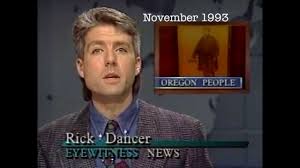
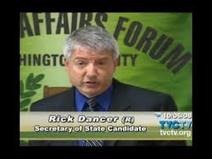
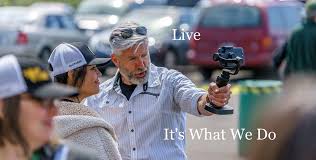


 RSS Feed
RSS Feed